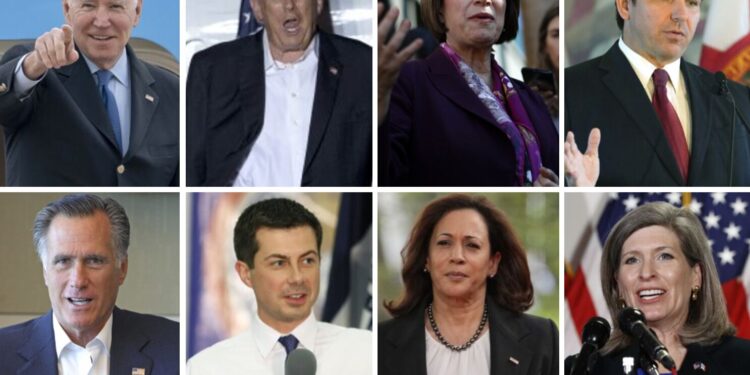The list of candidates includes Nikki Haley, Donald Trump and more
The 2024 presidential race is taking shape, with former President Donald Trump mounting a comeback bid for the White House, facing GOP competition from former South Carolina Gov. Nikki Haley, former Arkansas Gov. Asa Hutchinson and others.
Here’s an updated list of who is running for president in 2024 and a brief look at the potential contenders who have not yet confirmed their plans — as well as where President Joe Biden stands on seeking reelection. It also includes those politicians who have definitively ruled out a campaign.
Donald Trump, Republican
Trump, 76, formally launched his third bid for the White House on Nov. 15, following the 2022 midterms, which did not meet Republican expectations.
Trump announced his campaign from his Mar-a-Lago estate in Palm Beach, Florida. It didn’t come as a surprise, given that Trump had been hinting for months that he would make a run.
“America’s comeback starts right now,” he said, describing the U.S. as “in decline” and touting his administration as a “golden age.”
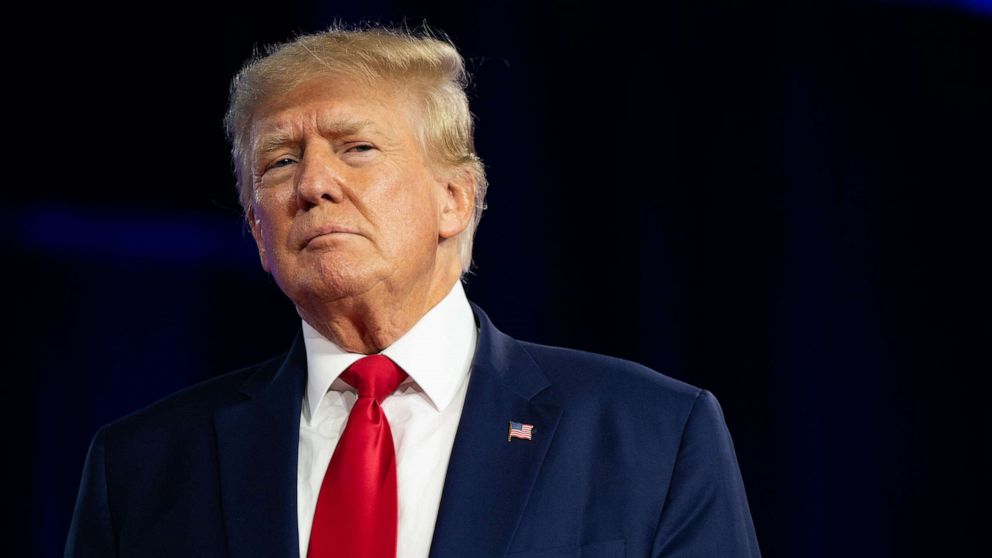
However, Trump’s third run for the White House comes as he faces multiple investigations — he denies wrongdoing — and has become increasingly estranged from some other leading figures in the GOP in the wake of Jan. 6, his 2020 election lies and other controversies and scandals.
While polling shows he remains popular with many voters in the party, many others say they want another nominee.
“America’s comeback starts right now,” he insisted in his announcement speech.
Steve Laffey, Republican
The former mayor of Cranston, Rhode Island, Steve Laffey announced his candidacy for president on Feb. 2.
In a statement, he said he wanted to confront the country’s issues.
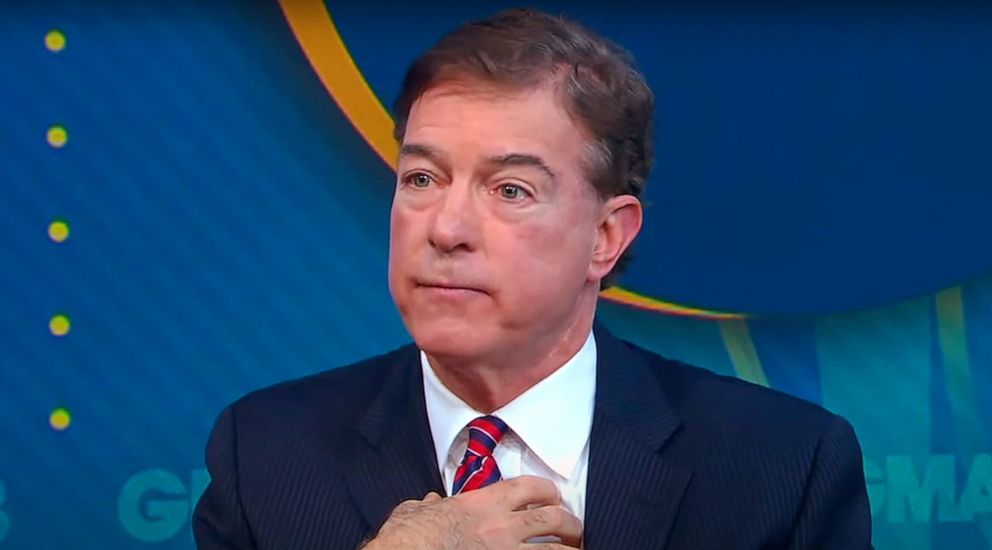
“Our country has done the equivalent of using Band-Aids in place of major surgery. Somehow, we have ‘gotten by,'” he said. “For the first time in a generation, we must directly confront our problems.”
Laffey is a long shot for the Oval Office, given his relative lack of name recognition or statewide or federal experience.
He previously made a run for Senate in 2006 in Rhode Island, against Republican Lincoln Chafee, who was ultimately defeated by Democrat Sheldon Whitehouse.
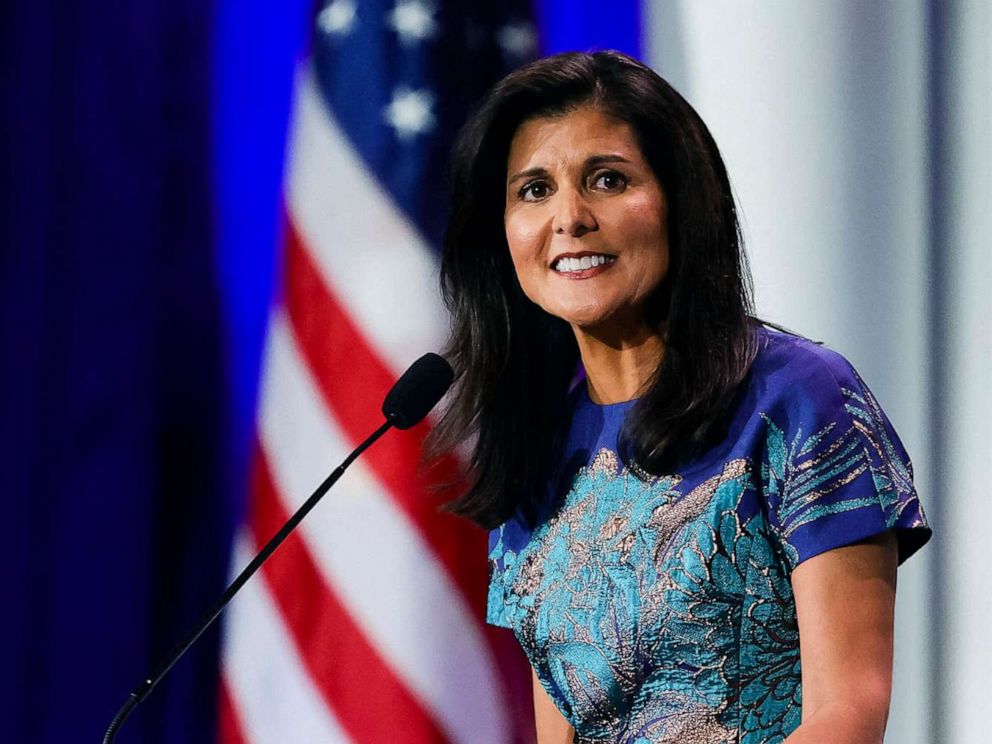
Nikki Haley, Republican
Haley, 51, announced her presidential bid in a video released on Feb. 14, a day ahead of a formal kickoff on Feb. 15 in Charleston.
Haley, who also served as a U.S. ambassador to the U.N. in the Trump administration, is the first high-profile Republican to challenge Trump.
In her announcement video, Haley, the daughter of immigrants, highlighted her heritage as a South Asian woman and touted her hopeful view of what America can offer.
“My mom would always say, ‘Your job is not to focus on the differences but the similarities.’ My parents reminded me and my siblings every day how blessed we were to live in America,” Haley said.
She underscored her credentials as a former leader of the Palmetto State, stressing its resilience, but most of all she said there was a major need for change in the GOP’s candidates.
“Republicans have lost the popular vote in seven of the last eight presidential elections. … It’s time for a new generation of leadership,” she said.
Haley was elected as the first female governor of South Carolina in 2010, stepping down in 2017, during her second term, to serve as a Trump ambassador until 2018.
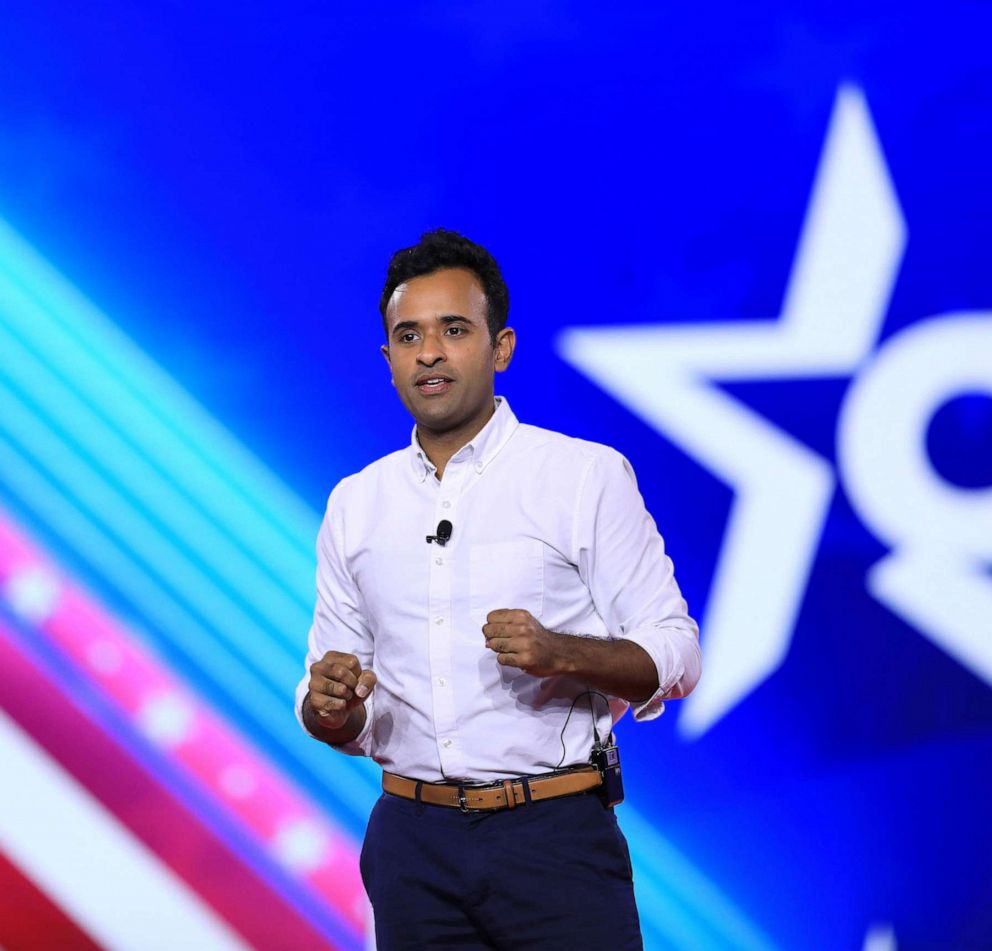
Vivek Ramaswamy, Republican
Ramaswamy, a 37-year-old multimillionaire entrepreneur who founded a major biotech company, announced on Feb. 21 that he is running for president as a Republican.
“We are in the middle of this national identity crisis, Tucker, where we have celebrated our diversity and our differences for so long that we forgot all the ways we’re really just the same as Americans, bound by a common set of ideals that set this nation into motion 250 years ago,” Ramaswamy told Fox News’ Tucker Carlson.
When asked what his message to voters will be, Ramaswamy said that “we need to put merit back into America in every sphere of our lives” — which includes immigration policy and affirmative action, the latter of which he argued was “a national cancer.”
In a campaign video shared on Twitter, he said: “We still agree on our nation’s most fundamental principles, at least most of us do. Yet the goal of the ruling party in this country is to convince us that we are divided.”
The Indian-American entrepreneur is also the author of “Woke, Inc.: Inside Corporate America’s Social Justice Scam.”
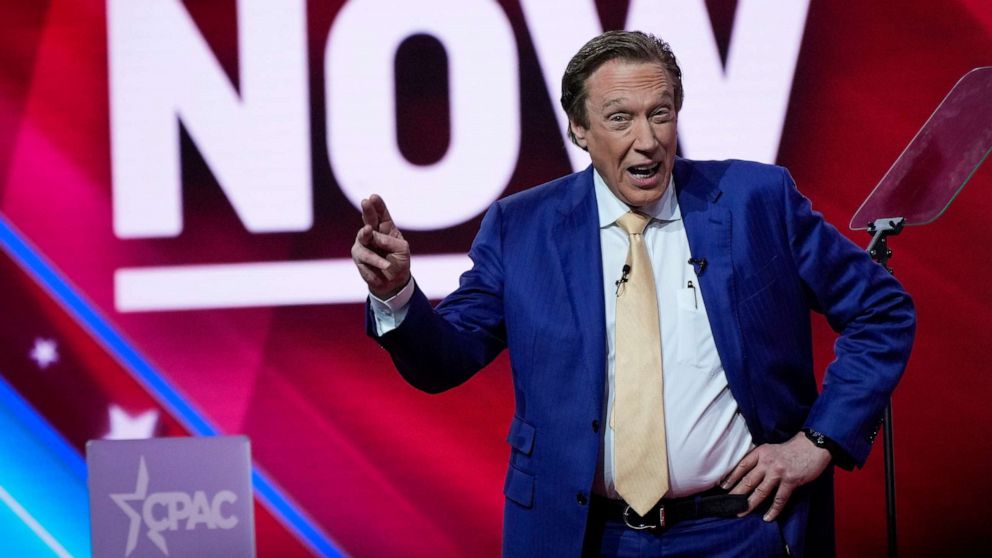
Perry Johnson, Republican
A 75-year-old Michigan businessman, Johnson launched his presidential campaign for the 2024 Republican nomination amid the 2023 Conservative Political Action Conference that began on March 1.
Johnson took third in CPAC’s straw poll for presidential picks, with nearly 5% of the vote. While he polled behind Trump and Florida Gov. Ron DeSantis, he was ahead of Haley and others.
While Johnson has no experience in elected office, he has a long career in business in Michigan. with almost 30 years of experience in the quality standards field. Two of his companies — Perry Johnson Registrars, and Perry Johnson, Inc. — both can certify businesses as meeting certain industry standards.
Before CPAC, his most notable political bid was when he ran for governor in Michigan in 2022 but was removed from the ballot before the Republican primary due to what state officials found to be fraudulent and invalid petition signatures.
Asa Hutchinson, Republican
Hutchinson, 72, announced he would run for president on April 2 during an interview on ABC’s “This Week” but said an official launch would not take place until later in April in his home state.
“I am going to be running. And the reason is, I’ve traveled the country for six months, I hear people talk about the leadership of our country. I’m convinced that people want leaders that appeal to the best of America, and not simply appeal to our worst instincts,” Hutchinson told “This Week” co-anchor Jonathan Karl.
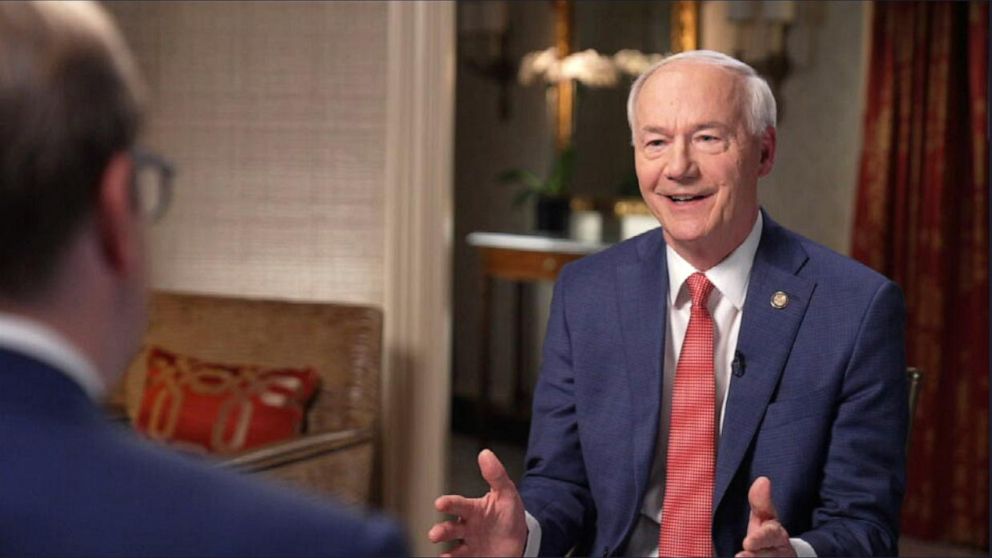
The former governor has emerged as a Trump skeptic within the Republican Party, and indicated to Karl that he would seek to veer away from culture wars and return to a party centered around the idea of small government — though he insisted he’s not “anti-Trump,” despite calling on the former president to drop out of the race over his indictment in New York City.
“When I say ‘non-Trump’, I want to be able to speak to the Trump voters. I want to be able to speak to all of the party and say, ‘This is the leadership that I want to provide, and I think that we need to have border security. I think we need to have a strong America; we need to spend less at the federal level.’ These are the values that I represent,” Hutchinson said.
Hutchinson expressed hope that his personal style in early primary states could pay dividends.
“It’s still about retail politics in many of these states and also, this is one of the most unpredictable political environments that I’ve seen in my lifetime. So my message of experience, of consistent conservatism and hope for our future in solving problems that face Americans, I think that that resonates,” Hutchinson told Karl.
Larry Elder, Republican
Edler, 70, a conservative talk radio host, announced on April 20 that he was seeking the Republican nomination for president.
The long shot candidate first ran for elected office in 2021 in the recall election to replace California Democratic Gov. Gavin Newsom. Newsom survived the recall effort by a wide margin, but Elder placed first among the replacement candidates.
In a tweet, Elder said, “America is in decline, but this decline is not inevitable. We can enter a new American Golden Age, but we must choose a leader who can bring us there. That’s why I’m running for president.”
Marianne Williamson, Democrat
Williamson, 70, first wrote in an email to donors on Feb. 26 that would formally announce on March 4 that she is running for president as a Democrat, in a long shot primary challenge to Biden.
Williamson is a bestselling self-help book author who first ran for president in 2020 on a pacifist and progressive platform.
She dropped out of that race before any primaries were held, but she outlasted several other serious contenders with impressive electoral resumes, including now-Vice President Kamala Harris, who at the time was a senator from California.
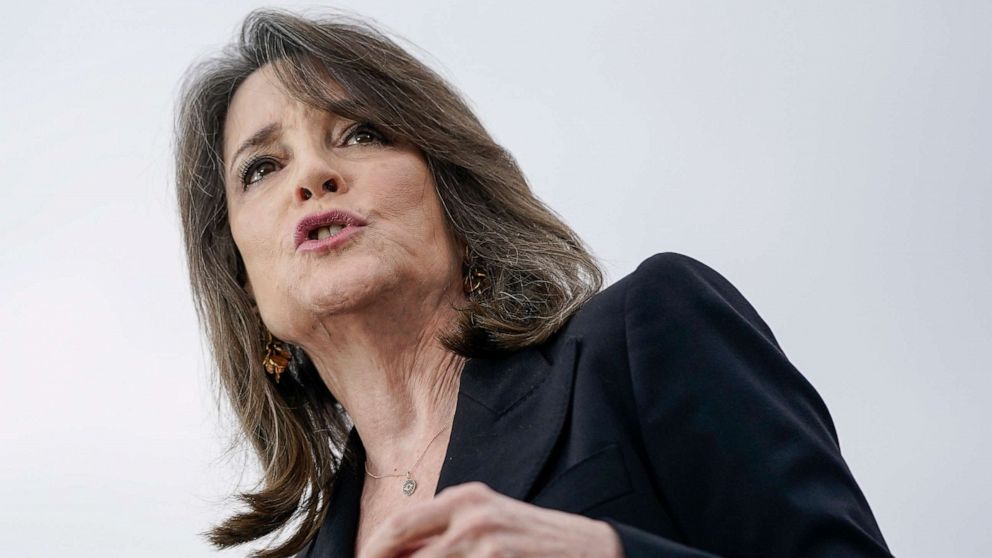
Williamson has advocated for solving foreign conflicts without military intervention and embraced progressive platforms like so-called “Medicare for All” and a $15 minimum wage.
She also became a viral sensation for infusing her campaign with language from her career as an author, warning Trump in 2020 that “I’m going to harness love for political purposes. I will meet you on that field, and sir, love will win.”
“We’re all here because we care about this country. But we’re all here, or at least many of us are, because we are upset about this country, we’re worried about this country,” she said in her launch speech. “It is our job to create a vision of justice and love that is so powerful, that it will override the forces of hatred and injustice and fear.”
Williamson also noted the conventional wisdom that she will face a nearly impossible task of unseating Biden in a primary, casting herself as a fighter against the establishment.
“I’m not naive about the forces which have no intention of allowing anyone into this conversation who does not align with their predetermined agenda,” she said.
Robert F. Kennedy Jr., Democrat
Kennedy, 69, announced his bid for the 2024 Democratic presidential nomination at the Boston Park Plaza in Boston on April 19.
“I’ve come here today to announce my candidacy for the Democratic nomination for President of the United States,” he during his campaign launch, noting that the aim of his campaign, and presidency, would be to “end the corrupt merger of state and corporate power.”
As the child of Robert and Ethel Kennedy, the younger Kennedy, an attorney and activist, has been discussing the possibility of a run with the benefit of built-in name recognition, given his family’s legacy within the Democratic Party.
However, he is also likely to bring a dose of controversy to the campaign trail given his well-documented efforts to discredit vaccine use. Online, he has fueled conspiracies regarding vaccine mandates throughout the COVID-19 pandemic and publicly voiced polarizing positions at an anti-vaccine mandate rally in Washington, D.C.
The candidate has espoused vaccine hesitancy since the 2000s, has become one of the most prominent voices in the anti-vaccine movement, according to experts, as the founder of Children’s Health Defense, a nonprofit organization known mainly for its anti-vaccine efforts.
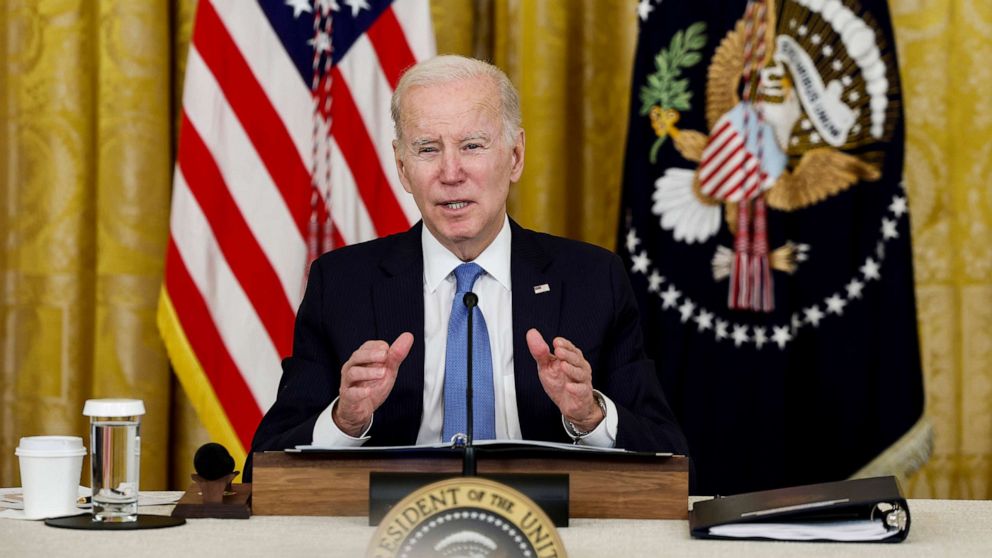
Where President Joe Biden stands on reelection bid
Biden, 80, has repeatedly said he intends to run for reelection in 2024 barring some major issues such as his health. However, the Democrat has not officially announced a decision.
Aides have told allies they could be ready to announce a reelection run as soon as Tuesday, April 25, which would be the four-year anniversary of his 2020 announcement.
“[M]y intention has been from the beginning to run. But there’s too many other things we have to finish in the near term before I start a campaign,” he told ABC News anchor David Muir at the White House in February.
Biden told Muir in December 2021 that the possibility of a rematch with Trump wouldn’t dissuade him.
“Why would I not run against Donald Trump for the nominee? That’ll increase the prospect of running,” he said.
A look at potential presidential candidates
The list of other potential White House hopefuls includes Hampshire Gov. Chris Sununu and South Carolina Sen. Tim Scott, among others, as well as Florida Gov. Ron DeSantis, who has played down questions about his ambitions even as sources have told ABC News he’s privately indicated he’ll launch a campaign in May or possibly June.
DeSantis has said for the time being he’s focused on serving as governor of Florida, an office he was reelected to in November by a mammoth 19-point margin. An announcement would likely not come before the state’s legislative session is over in the summer.MORE: DeSantis woos conservative members of Congress as Trump racks up endorsements
Scott, 57, announced on April 12 — the anniversary of the start of the Civil War — that he was launching a presidential exploratory committee, the same week he had stops scheduled in Iowa, New Hampshire, and his home state of South Carolina.
“I will never back down in defense of the conservative values that make America exceptional,” Scott said in a video.
The only Black Republican in the Senate, Scott has been flirting with a bid for months.
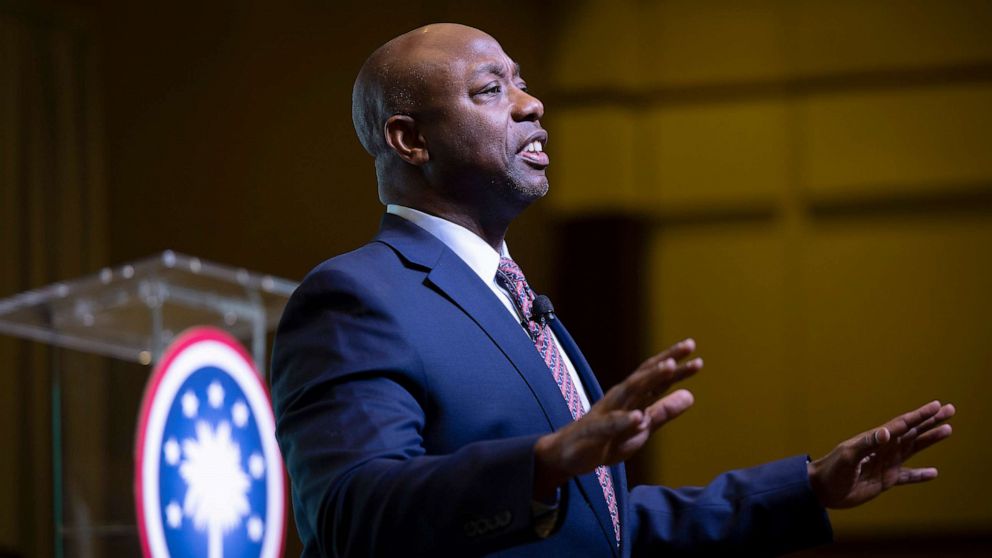
“I’ve been doing a lot of thinking the past few months,” he wrote an email to supporters. “I’ve been thinking about my faith. I’ve been thinking about the future of our country. And I’ve been thinking about the Left’s plan to ruin America.”
An exploratory committee will allow the senator to raise money for a presidential campaign while he tests the waters in early-voting states.
Sununu, meanwhile, has been open that he’s mulling a White House run, saying on ABC’s “This Week” in February that he’s “definitely thinking about it and having those conversations.”
Another possible entrant is former Vice President Mike Pence, who broke with Trump over his ability to overturn the 2020 election results. Pence told ABC News’ Muir last year that he was thinking about a bid and has been traveling to early primary states with a message focused largely on social issues.
“I wish her well. Ambassador Nikki Haley did a great job in our administration, and she may have more company soon in the race for president, and I promise folks here in Iowa and all of you I’ll keep you posted,” he teased on Feb. 15 when asked about Haley’s announcement.
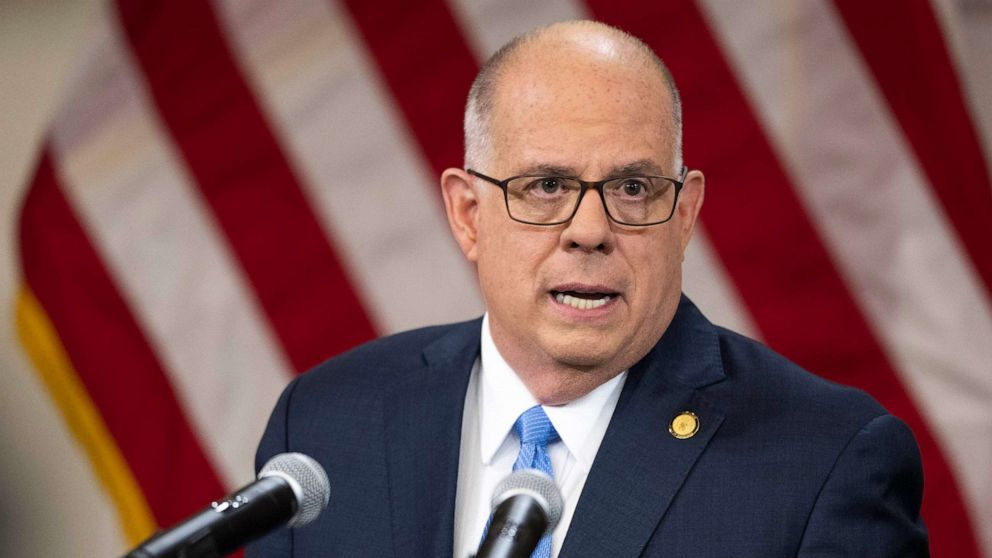
Who isn’t running
Maryland Gov. Larry Hogan on March 5 became the first major Republican mulling a presidential bid to say he will not run in 2024.
Hogan said in a statement that he would not “risk being part of another multicar pileup that could potentially help Mr. Trump recapture the nomination,” as Trump did in 2016 when he won the GOP nomination amid a splintered field.
Former Secretary of State Mike Pompeo on April 14 became another high-profile Republican to announce he wouldn’t be seeking the party’s nomination.
“It is simplest, and most accurate, to say that this decision is personal,” Pompeo said in a statement. “This is not the right time for me and my family.”
“There remain many more opportunities for which the timing might be more fitting as presidential leadership becomes even more necessary,” he continued.
Source: abcNEWS

